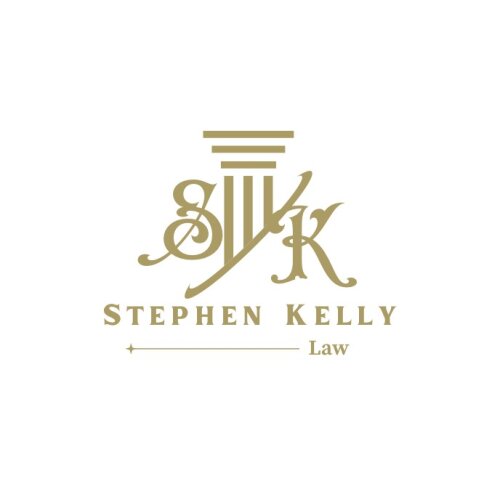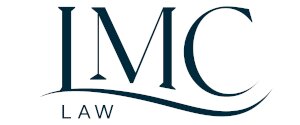Best Media, Technology and Telecoms Lawyers in Dublin
Share your needs with us, get contacted by law firms.
Free. Takes 2 min.
List of the best lawyers in Dublin, Ireland
About Media, Technology and Telecoms Law in Dublin, Ireland
Media, Technology and Telecoms (MTT) law in Dublin, Ireland, is a dynamic and rapidly evolving field. Given Dublin's status as a growing tech hub, with a significant concentration of multinational tech companies, the legal landscape in MTT is particularly robust and intricate. MTT law encompasses areas such as intellectual property, data protection, digital media, telecommunications regulations, and information technology. The sector is governed by a combination of local Irish laws and European Union regulations, making it essential to seek legal expertise when navigating this complex field.
Why You May Need a Lawyer
There are several situations where you might require legal assistance in Media, Technology and Telecoms, including:
- Intellectual Property Issues: Protecting patents, trademarks, copyrights, and dealing with infringements.
- Data Protection and Privacy: Ensuring compliance with GDPR and handling data breaches.
- Contract Negotiation and Review: Drafting and reviewing technology contracts, licensing agreements, and service level agreements.
- Telecoms Regulation: Navigating the regulatory landscape for telecom services, spectrum licenses, and compliance issues.
- Litigation and Dispute Resolution: Resolving disputes arising from technology or media matters.
- Mergers and Acquisitions: Legal due diligence and transactions involving media and tech companies.
Local Laws Overview
Key aspects of local laws relevant to Media, Technology and Telecoms in Dublin, Ireland include:
- Data Protection Acts: Govern the processing of personal data, with the GDPR providing a stringent framework for data protection and privacy.
- Communications Regulation Act: Regulates the telecoms sector, overseen by the Commission for Communications Regulation (ComReg).
- Copyright and Related Rights Act: Provides protection for creative works and addresses issues related to copyright infringement.
- Companies Act: Deals with the incorporation and regulation of companies in Ireland, pertinent for tech businesses.
- Digital Services Act: Set to impact online platforms and services significantly, focusing on digital content and services.
- Information and Communications Technology (ICT) Law: Encompasses legal issues around information systems, internet law, and e-commerce.
Frequently Asked Questions
1. What is the GDPR and how does it affect my business?
The General Data Protection Regulation (GDPR) is a regulation in EU law on data protection and privacy. It affects any business handling the personal data of EU individuals, requiring stringent data protection measures and giving individuals more control over their personal data.
2. How can I protect my intellectual property in Ireland?
Intellectual property in Ireland can be protected through patents, trademarks, copyrights, and trade secrets. It's crucial to register your IP and use legal contracts to safeguard it.
3. What are the main regulatory bodies for telecoms in Ireland?
The main regulatory body for telecoms in Ireland is the Commission for Communications Regulation (ComReg), which oversees the telecoms, broadcasting, postal, and spectrum management sectors.
4. What should I include in a technology licensing agreement?
A technology licensing agreement should include terms on the scope of use, royalties, duration, confidentiality, termination clauses, and dispute resolution mechanisms.
5. How do I ensure compliance with data protection laws?
Ensure compliance with data protection laws by implementing robust data management policies, conducting regular audits, training staff, and appointing a Data Protection Officer (DPO) if required.
6. What constitutes a data breach under Irish law?
A data breach under Irish law includes any incident leading to the accidental or unlawful destruction, loss, alteration, unauthorized disclosure of, or access to personal data.
7. Are there specific laws governing digital media in Ireland?
Yes, digital media in Ireland is governed by a combination of copyright law, defamation law, and regulations on digital advertising and online content.
8. How can I resolve a dispute with a tech contractor?
Disputes with tech contractors can be resolved through negotiation, mediation, arbitration, or legal litigation. Contractual dispute resolution clauses can guide the appropriate method.
9. What are the legal considerations for starting a tech company in Dublin?
Starting a tech company in Dublin requires compliance with the Companies Act, securing necessary IP protections, adhering to data protection laws, and ensuring regulatory compliance in the telecoms sector if applicable.
10. How does the Digital Services Act impact my online business?
The Digital Services Act imposes new rules on transparency, content moderation, and accountability for online platforms. Businesses may need to adapt their practices to comply with these requirements.
Additional Resources
Consider consulting the following resources for further information and assistance:
- Commission for Communications Regulation (ComReg): Regulatory authority for the telecoms sector.
- Data Protection Commission (DPC): Regulatory body for data protection and privacy.
- Intellectual Property Office of Ireland: Provides information and services for IP protection.
- Law Society of Ireland: Offers resources and directories to help find qualified solicitors.
- Local Business Chambers: Such as the Dublin Chamber of Commerce, which can provide networking and support resources.
Next Steps
If you need legal assistance in Media, Technology and Telecoms, consider the following steps:
- Identify Your Legal Needs: Clearly define your specific legal requirements in the MTT sector.
- Research and Select a Lawyer: Look for specialized solicitors with expertise in media, technology, and telecoms law.
- Prepare Documentation: Gather all relevant documents and information related to your legal matter.
- Schedule a Consultation: Arrange a meeting with your chosen lawyer to discuss your needs and determine the course of action.
- Follow Legal Advice: Act on the guidance provided by your legal advisor to ensure compliance and protect your interests.
Lawzana helps you find the best lawyers and law firms in Dublin through a curated and pre-screened list of qualified legal professionals. Our platform offers rankings and detailed profiles of attorneys and law firms, allowing you to compare based on practice areas, including Media, Technology and Telecoms, experience, and client feedback.
Each profile includes a description of the firm's areas of practice, client reviews, team members and partners, year of establishment, spoken languages, office locations, contact information, social media presence, and any published articles or resources. Most firms on our platform speak English and are experienced in both local and international legal matters.
Get a quote from top-rated law firms in Dublin, Ireland — quickly, securely, and without unnecessary hassle.
Disclaimer:
The information provided on this page is for general informational purposes only and does not constitute legal advice. While we strive to ensure the accuracy and relevance of the content, legal information may change over time, and interpretations of the law can vary. You should always consult with a qualified legal professional for advice specific to your situation.
We disclaim all liability for actions taken or not taken based on the content of this page. If you believe any information is incorrect or outdated, please contact us, and we will review and update it where appropriate.
Browse media, technology and telecoms law firms by service in Dublin, Ireland
Dublin, Ireland Attorneys in related practice areas.










